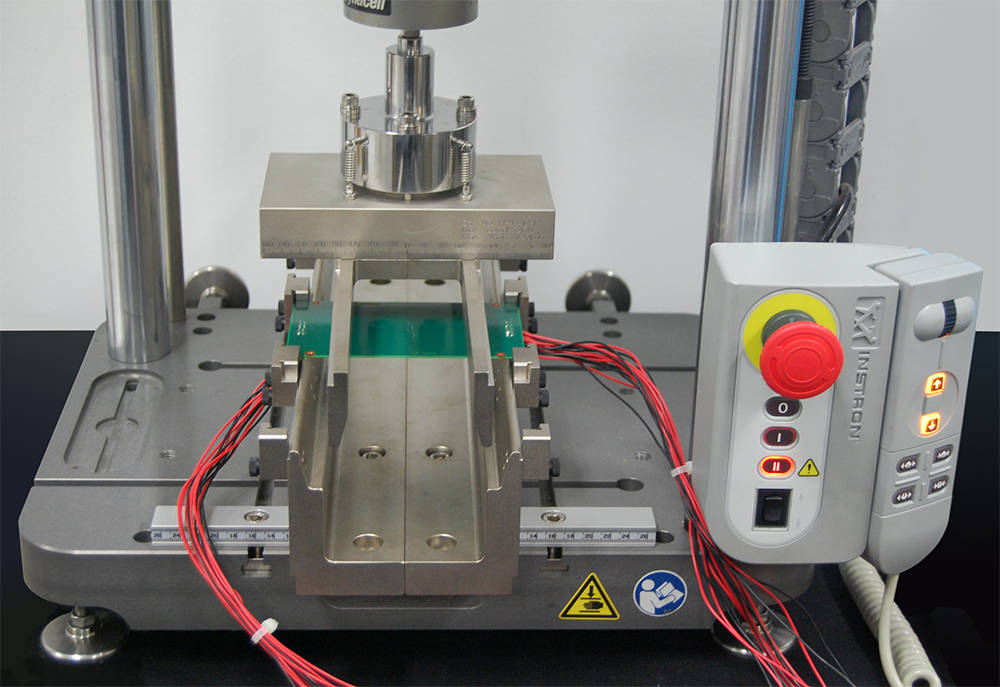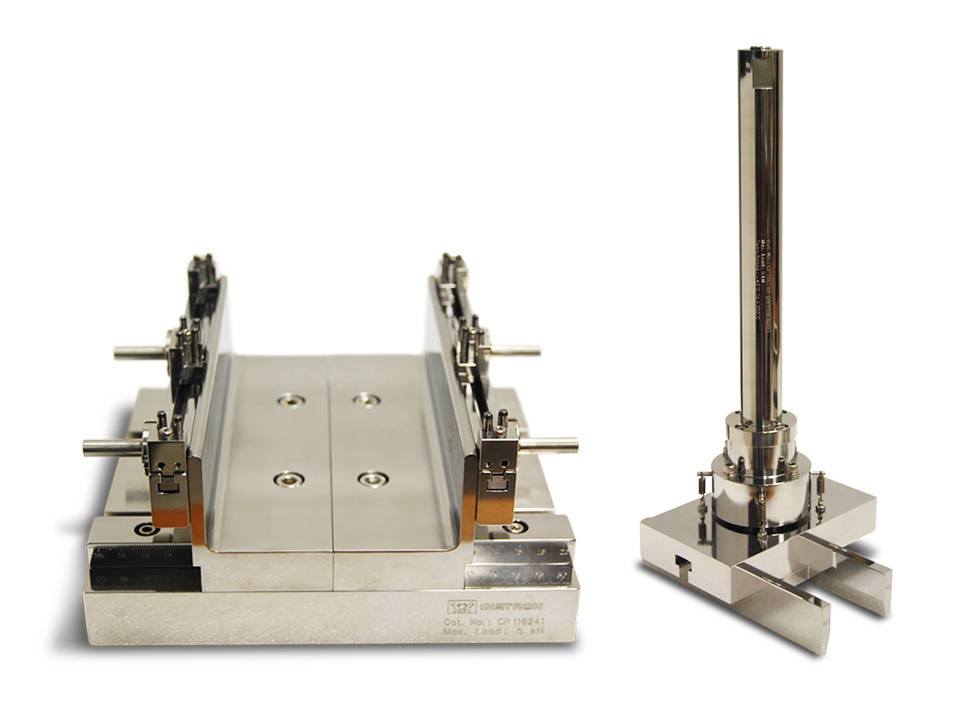JEDEC JESD22B113
Standard At A GlanceMaterials
- Components
- JEDEC JESD22B113
- High Cycle Fatigue
Written by Fulin Liu and Charlie Pryor
THE CHALLENGEBoard Level mechanical tests are an essential quality control test within the microelectronics packaging industry. They provide testing data to support IC components' performance against interconnect failures during shipment and in end-use products where cyclic stresses and shock from impact are experienced.The JEDEC JESD22B113 test method is used to evaluate and compare surface mounted electronic components' performance in an accelerated test environment for handheld electronic products applications. This is done by using a specified 4-point cyclic bending test method.
OUR SOLUTION
The standard recommends a specimen design similar in size and layout to a drop Impact test. It specifies the spans and the cyclic amplitude, frequency, and waveform for performing this test. Interconnection failure is determined based on resistance daisy chains, typically five times the initial resistance or 1000ohms, whichever is higher. The challenge of the JEDEC JESD22B113 test that an operator must have the test system continuously generate the flexural loading based on a specified cyclic waveform on the printed wiring board (PWB) via the 4-point bend to long-time fatigue – up to 200,000 cycles at 1-3Hz frequency without lateral specimen shifting.
Instron® ElectroPuls® systems E1000, E3000, and E3000NB are the ideal test machines for micro-electronic fatigue testing. E1000, E3000, and E3000NB material testing instruments use patented linear motor technology, offer slow-speed static and high-frequency fatigue testing. It includes Instron advanced digital control electronics, Dynacell™ load cell, Console software, and the very latest in testing technology – hassle-free tuning based on specimen stiffness. WaveMatrix™3 Dynamic Testing Software allows users to quickly and easily construct a wide range of dynamic (waveforms) and quasi-static test methods using minimal steps within a simple matrix structure.
The JEDEC B113 test fixtures CP111414 and CP118691 are specially designed in accordance with the JEDEC JESD22B113 method for performing long-time cyclic 4-point flexural fatigue tests. Easy setup of removable specimen stops is to prevent undesired drifting of the specimen during the cyclic test. As a displacement-controlled test, the fixtures are designed to allow for up to 4 PWB specimens to be tested simultaneously in one setup, which saves time.
The JEDEC B113 test fixtures CP111414 and CP118691 are specially designed in accordance with the JEDEC JESD22B113 method for performing long-time cyclic 4-point flexural fatigue tests. Easy setup of removable specimen stops is to prevent undesired drifting of the specimen during the cyclic test. As a displacement-controlled test, the fixtures are designed to allow for up to 4 PWB specimens to be tested simultaneously in one setup, which saves time.

JEDEC B113 Fixture

RELATED CONTENT